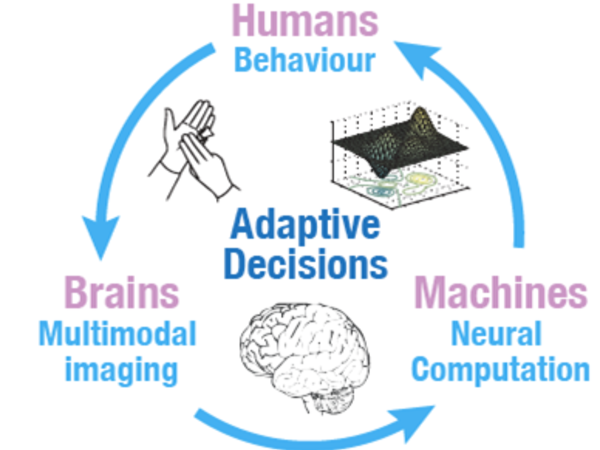About Us

How does the brain piece together information from the senses to interact with a rapidly changing world? This key brain activity underlies important skills such as recognising friends, categorizing objects, moving our bodies to interact with or avoid interesting or dangerous objects and working out where we are in the world.
Work in the Adaptive Brain Lab examines the brain mechanisms underlying our ability to perceive the structure of the world around us. We work on the basic premise that human perception is an active process that relies on the brain bringing together different pieces of sensory information and knowledge gained from past experience. We aim to understand how humans of all ages translate sensory experience into complex decisions and adaptive behaviours by taking into account previous experience and learning.
We address this challenge using an interdisciplinary approach that combines behavioural paradigms, movement recording, multimodal brain imaging (MRI, EEG, MEG, TMS) and state-of-the-art computational methods. We apply these techniques to study the young and ageing brain and understand adaptive behaviours across the lifespan.
Please allow social and marketing cookies to show embedded content.
Please allow social and marketing cookies to show embedded content.
